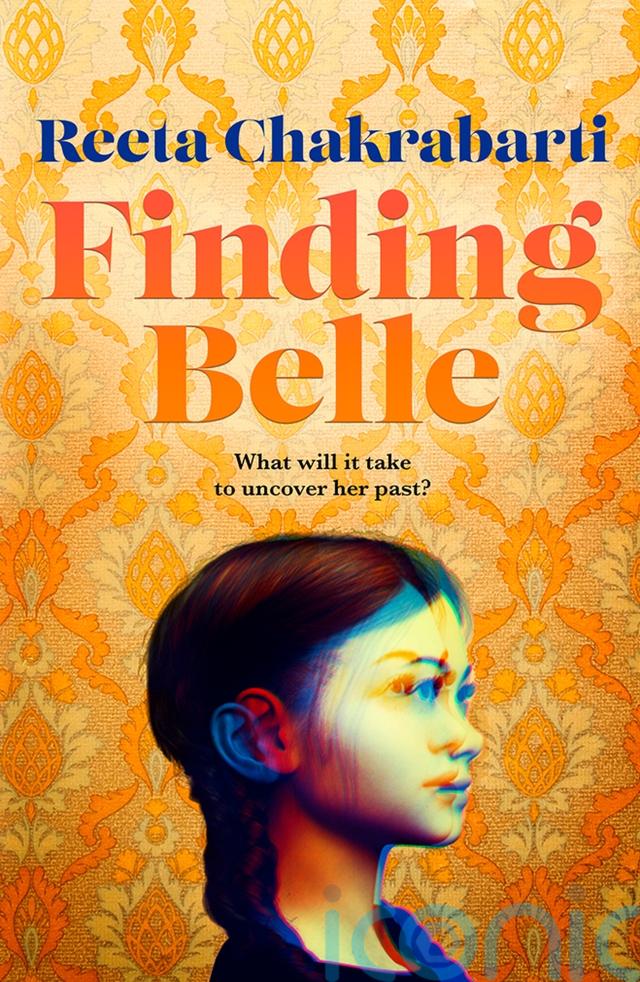
Reeta Chakrabarti is very chic, and it’s not just because there’s something incredibly elegant and sophisticated about becoming a novelist at 60. “I’m a bit incredulous. I’ll read about someone else who’s 60 and think, ‘Oh, they’re quite old’. And then I think, ‘Oh, my goodness, that’s me,’” says Chakrabarti, who turned 60 in December and is celebrating the release of her debut novel, Finding Belle, this month.
Turning 40 and 50 were tougher than 60 she reckons, but 39 and 49 were even harder “because I felt I was clinging on to the previous decade. But, then, the clock ticks on and absolutely nothing changes,” she says mildly.
Born in Ealing, London, this isn’t the first time the newsreader has squashed the age barrier, that pesky assumption that, once you’re a certain age, it’s too late to try something new or do something wildly brilliant for yourself. She also became a presenter on BBC News at 49, having previously been a correspondent. In recent years she’s reported from Ukraine and most recently Rome, for Pope Francis’ funeral. “What can’t I do now that I could do when I was 35? Well, I can’t have more babies, but I don’t want more babies,” says the mum of three grown-up children. “Other than that, nothing. I would urge everybody younger than me not to feel fearful, 60 is great.”
But then 2020 hit, and with it, lockdown. “Broadcasters were key workers, so I was still going into the newsroom, but I wasn’t doing anything else other than my one hour of exercise a day,” she remembers. “So I thought, now or never.”
The result is a coming of age story dredged in dark themes, including neglect, infidelity, a controlling patriarch, isolation and ill health. “By nature, I’m quite a cheerful person who is glass half-full, but human beings are very broad based. We experience a lot. I report on lots of dark things,” she notes, explaining there’s a reason we’re drawn to terrible things sometimes. “Emotions that are played out on the page help us sort out our own heads, our own lives, our own attitudes.”
Finding Belle follows Mivvi, who watches her beautiful, preening English father Fairfax fail to cope with her mother Belle, whose happiness and mental health increasingly deteriorate in their home in Milton Keynes – a place in stark contrast to Belle’s childhood spent in Mombasa with wealthy Indian parents. “There’s also a good old-fashioned secret driving the book as well,” says Chakrabarti, twinkling, and despite the darkness, Mivvi does “ultimately prevail”.
Originally she set it in the 1990s, but it didn’t quite work. Chakrabarti’s editor suggested shifting the timeline to the Seventies instead. “Inevitably, I ended up drawing on my memories of Britain in the Seventies,” she says. “I don’t draw on direct experience, but a flavour and a feeling of what Britain was like in the Seventies and early Eighties if you were a little brown girl. It was a harsher place when it came to race. It was a more raw place.”
A second generation Brit, Chakrabarti’s parents moved to the UK from India in 1960, “from Calcutta, as it was then, and they made a new life for themselves here”. They were not long married and her father was a junior doctor. “There was a need in the NHS for doctors from the Commonwealth,” says Chakrabarti. “My parents spoke Bengali to each other at home. We had Indian food at home. So I grew up with a dual culture and identity. That’s absolutely defined me.”

Chakrabarti believes Britain is “very different” to how it was in the Seventies, mostly for the better. “Every so often, there’ll be something that happens that makes me question my optimism. There was an outbreak of ugliness last summer after the Southport murders [when three young girls were murdered at a dance class], which was upsetting,” she says. “There are times when you hear the testimony of somebody else who’s had a very hard time, and you realise that for some people, possibly a lot of people, things remain very challenging.”
But there are moments that give her hope, like when she pops up on Gogglebox on Channel 4. “What an honour and a privilege. This is how life has changed,” she says happily. “I’m not saying racism has disappeared from Britain. It hasn’t, but in the Seventies, I would be teased for having a name like Chakrabarti and now it’s become part of the national fabric. Isn’t that just absolutely brilliant? That makes me so pleased, not for myself, but for us as a country.”

Motherhood is another major strand of Finding Belle. A close friend described Chakrabarti as a “loving but firm” mum. “I thought, ‘I’ll take that. That’s exactly what I am,’” she says with a laugh. “I have adored being a mother and adored my children.” She has also been married to her husband Paul Hamilton, a professor of English at Queen Mary University in London, for more than 30 years.
“I wish there was a recipe, an instant, ‘Aha! This is what you do!’” she says when asked how you sustain a relationship for so long. “Just like everything in life, you muddle through. I try and be wise about it and say, you grow. You become different people over time. I’m not the person I was in my 20s, nor is he, but you try and give each other space. You are at times closer, at times less close, but you’ve got to both want to go on being in the partnership, and we both do.”
On a day off, Chakrabarti can be found with her family, reading lots – of course – taking a dip at an indoor pool (“I did swim outdoors for quite a few years, but I’ve chickened out!”), visiting art exhibitions, and occasionally going to the opera (“I love the opera”).
But the drama and buzz of live telly and breaking news always draw her back in. “You have to enjoy it, because otherwise, it would destroy you, wouldn’t it? It’s quite pressurised. If things go wrong, even if it’s not your fault, it looks like it’s your fault.” It’s worth the pressure though. “We all love giving each other the news, don’t we?” she says, even if it’s just who is going out with who. “I get to do that about national and international events. I get to do it for the whole country. It’s very exciting.”
Finding Belle by Reeta Chakrabarti is published in hardback by HarperCollins, priced £16.99 (ebook £9.99). Available May 8.
Subscribe or register today to discover more from DonegalLive.ie
Buy the e-paper of the Donegal Democrat, Donegal People's Press, Donegal Post and Inish Times here for instant access to Donegal's premier news titles.
Keep up with the latest news from Donegal with our daily newsletter featuring the most important stories of the day delivered to your inbox every evening at 5pm.